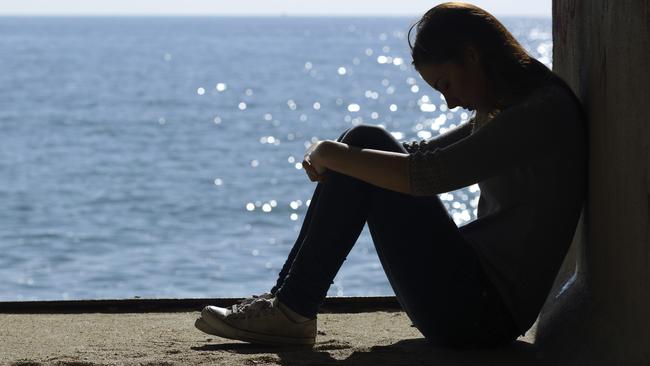Teen crisis: self-harm tripled in Melbourne coronavirus lockdown
Sixteen teenagers harmed themselves and were admitted to one hospital’s intensive care unit in just three months during Melbourne’s coronavirus lockdown.

Sixteen teenagers harmed themselves and were admitted to one hospital’s intensive care unit in just three months during Melbourne’s coronavirus lockdown, a surge doctors warn is part of an alarming mental health crisis among children.
The Australian has confirmed that the admissions to the Monash Children’s Hospital ICU from August to last month represented a significant increase on the five self-harm cases treated there in the same period last year. A senior child psychiatrist warned Melbourne was in the grip of a deepening teen mental health crisis linked directly to the four-month lockdown ordered by the Victorian government to beat COVID-19.
“Lockdown was an extremely traumatic and sustained experience for young people,” said the mental health expert, who asked not to be named. “It was also well outside the range of normal stresses and troubles of life.
“We all know you are going to have to deal with heartbreak, or death, or illness in yourself or family … but a lot of the young people I talk to, they are disproportionately far more fearful of the virus itself than I think is warranted from a data point of view.
“Amplifying that were the stresses and restrictions of isolation and lockdown, of being away from your friends and being trapped in a family … even if that’s a perfectly good family.”
According to data released by Monash, eight teens were treated in the ICU after self-harming this August, compared with four in the same month last year. In September there were four cases (none last year) and there were four cases in October (one last year).
Associate professor Felix Oberender, director of Monash’s paediatric ICU, said: “It is hard to say for certain what exactly may have caused this increase in self-harm cases. Children and teenagers face lots of pressures in their life, which have been amplified during this pandemic.”
More than 160,000 students in Years 8-10 missed 22 weeks of school this year, instead doing remote learning as the government imposed one of the toughest lockdowns in the world to defeat the coronavirus’s second wave.
Some doctors believe the Monash data is compelling evidence teenagers were hardest hit by Melbourne’s lockdown.
A range of doctors, paediatricians and adolescent mental health experts spoken to by The Australian all pleaded with the government to avoid future lockdowns, even in the event of a third wave.
“Once the second lockdown felt it was never going to end — cases weren’t trending down for quite a long time, and there was no exit strategy of any sort — people’s capacity to grit their teeth and hang in there reached its limits,” one medical expert said.
“There is a certain inevitability about the virus coming back when we open up again and there is every chance that the lockdown policies will be right back in, given the enormous institutional support and the lack of any meaningful opposition; people grumbled but there was none of that million people politely walking out on the streets and getting back to work and saying, ‘no we don’t accept these conditions’.”
Mental health experts queried whether the recently announced investment in mental health funding was all new money and feared it wouldn’t make a difference.
Premier Daniel Andrews announced a $870m funding boost, including almost $500m for 120 extra mental health beds.
“Everyone wants the best for the children but there is not mechanisms to actually force government to increase resources because of public pressure or even built-in mechanisms to increase capacity as there are for increased emergency presentations for every flu season, or after an accident or bushfire, when everything instantly ramps up,’’ one mental health expert said.
“Elective surgery lists are nice and carefully collected and CEOs of hospitals are pressed to improve them. But in mental health it just does not work like that.
“I don’t understand it because the same forces should apply and there are even similar metrics. But the kind of excuses are, ‘it’s a lot harder to bring online mental health beds’. I don’t buy that, it’s not a compelling argument.”
Senior developmental paediatrician Liam Tjia believes the teen mental health crisis can be linked to the draconian Melbourne lockdown, and said that must not be repeated. “There must never, ever be such a broad, geographically determined lockdown, as the governments have been relying on this year. It is just unconscionable,” Dr Tjia said.
“There just needs to be no more lockdowns. The pandemic can be managed through measures. We just need to be better prepared about managing it without relying on lockdowns.”




To join the conversation, please log in. Don't have an account? Register
Join the conversation, you are commenting as Logout